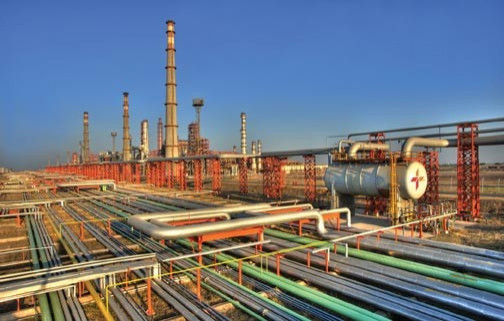Essar Group To Profit From Indian Rupee's Depreciation, Helped By Billionaire Owners' Strategy

The $27 billion Essar Group, with major stakes in the world's shipping, steel and oil industries, and its billionaire owners -- brothers Shashikant and Ravikant Ruia -- are putting together a strategy to save $300 million a year from the Indian rupee's steep fall.
The Mumbai, India-based conglomerate will replace about 70 percent of its liabilities worth 370 billion rupees ($6.1 billion) in Essar Oil Ltd (BOM:500134) and Essar Steel India with overseas dollar loans, according to a Bloomberg report, to save on borrowing costs.
The move is expected help the company reduce its interest payments, as the rupee's depreciation against the dollar will help the company to borrow less overseas to repay the debt in the domestic currency. The company's plan to recast its debt also increases the average maturity of its liabilities.
“This is the perfect time to do the debt conversion,” V. Ashok, the group’s chief financial officer, told Bloomberg News. “Currency weakness is an advantage for us. The dollar liability will be much less right now with the rupee being so weak. We are looking at dollar loans, not bonds.”
In a separate move announced on June 20, Essar Steel said it raised $1 billion in external commercial borrowings, or ECBs, in June, which is expected to save approximately 4.5 billion rupees a year in interest payments, the company said in a statement.
“It is imperative that the debt of the company is aligned to the earning currency thereby reducing volatility in earnings. The dollarization of rupee debt would not only de-risk our balance sheet, but also elongate maturity and reduce interest costs,” said Ashutosh Agarwala, CFO, Essar Steel India, in the statement.
Indian companies raised $18.8 billion from foreign-currency bonds and loans in 2013, as compared to $9.5 billion a year ago, as the cost of borrowing in India is the highest among major Asian economies, Bloomberg reported.
Apart from the savings attributed to the depreciation in the rupee, which has fallen more than 10 percent in 2013, repaying domestic loans will also free up the company’s assets set aside as collateral security to lenders.
“The company will also gain significantly in terms of additional liquidity and substantial savings in interest cost,” Essar Steel said in the statement. Moreover, Essar’s earnings are dollar-linked and hence the company does not expect currency fluctuations to impact its debt, it said.
The rupee touched a new record low of 60.72 against the dollar on Wednesday. It recovered marginally on Thursday and was trading at 60.27 in afternoon trade.
© Copyright IBTimes 2025. All rights reserved.






















